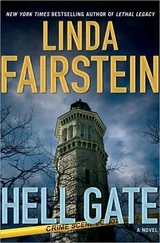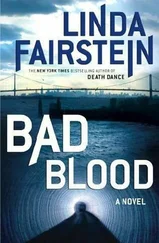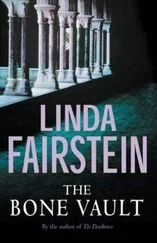Caxton described the exodus. “In the mid-nineties, Paula Cooper moved her business up to Chelsea, the west twenties between Tenth and Eleventh Avenues. Have you been over there lately?”
“You won’t be asking Alex questions like that after you get to know her a little better, Mr. Caxton,” Chapman said. “She doesn’t eat, shop, or sleep outside of her zip code. Makes her skin crawl soon as you say the words ‘West Side,’ doesn’t it, Coop?”
“We have a lot in common,” Caxton replied, smiling back at me. “Paula Cooper-no relation, I take it?”
“No, I know her only by reputation.” And because my father had bought some paintings from her, I thought to myself, remembering a Jennifer Bartlett I particularly loved.
“Well,” he continued, “she’s the real class of this business. And its bellwether. I don’t actually know the reason she moved, but it’s a safe guess to say that it’s because of what happened in SoHo. This district in Chelsea was full of enormous warehouses. Fifty years ago, when the ocean liners docked on the piers all along the Hudson and connected to the railways there, it was a commercial hub. Lately, the warehouses have been used for auto repair shops and taxi dispatch centers-vast and utilitarian, but not terribly attractive.
“Paula found a fabulous space on Twenty-first Street. Cleaned it up, put in some skylights, whitewashed the interior, and everyone who thought she’d been out of her mind realized what a genius she was. Deni and Bryan started buying up land on those blocks a couple of years ago, planning to open a new venture together. Real estate’s gone through the roof over there. Kind of sorry I ignored them in the beginning. I could have made a killing on the property alone.” Caxton paused. “Bad choice of words today, isn’t it?”
Remorse wasn’t his strong suit.
“And the cocaine? What were her sources for that?”
“The problem only started four or five years ago. About the time that her taste in art changed so radically. Deni knew how strongly I disapproved of her drug use. I could only joke that one had to be stoned to appreciate the work she was trying to hawk to the great unwashed.”
“Do you know who her dealer was?” Mercer asked.
“I think she used to get it from the kids who hung around the galleries. Then, as she got hooked, she’d just beep whoever wasn’t in jail at the moment, and a delivery would arrive, brought up to our home by the white-gloved doormen. Usually camouflaged in potpourri or packaged in a bag with assorted foodstuffs from Dean amp; Deluca.”
“Did she owe money to anybody? Any suppliers?”
“No reason to. More than enough money to support all her habits.”
Mercer was working the drug angle with good reason. Deni’s body had been found at the tip of the Thirty-fourth Precinct, which was the heart of Manhattan’s illegal drug operations. Colombians, Dominicans, and African American street gangs-Santiago’s Sinners, Latin Kings, and Wild Hightops-mixed it up with one another night and day as they pumped the streets of the city full of heroin, cocaine, and all their derivative forms. Even if Deni had been thrown in the water from the Bronx side of the creek, the odds were overwhelming that the site of the dumping was heavily infested with users and sellers of every kind of controlled substance.
“Had either of you started divorce proceedings, Mr. Caxton?” I wanted to know.
“Yes, yes, I had. More than a year ago. No rush about it, and not that I had any plans to go to the altar again, but the marriage was over and I wanted to be sure that I got out of it with most of the treasures I came in with, you see. The money was irrelevant to me, but I needed to protect the collection and keep it intact, as well as I could.”
“What was the status of the legal action?”
“Our lawyers were negotiating, Miss Cooper. I’m sure you know what that means. Trying to run up their bills at hourly rates with endless phone calls and meetings and suggestions- and general nonsense.”
“I assume there was a prenup-”
“Certainly there was. But most of its contingencies were useless after the marriage survived ten years. You must realize how much older I was than Deni. I thought a decade with her would be bliss. It’s like the salesmen who try to sell a man my age a watch with a lifetime guarantee,” the septuagenarian went on. “I always tell them that I’d be interested in a similar piece, but for a lower price and with simply a ten-year guarantee.”
“So what was she fighting about?”
“It wasn’t money, Detective Chapman. I’ve offered plenty of that, and she made quite a lot of it on her own projects. But she wanted more of the art, some of my pieces. Claiming an entitlement for many of the things I’d bought since we’d been together. As though I needed her judgment to lead me to a Titian or Tintoretto. Perhaps next time you’re here,” Caxton said, making it obvious that we were coming to the end of his hospitality, “you might like to see what it is I want to hold on to.
“Unlike that mishmash of styles my wife favored, I’ve hung my favorites each in its own salon. My bedroom is devoted to van Gogh-Deni thought they were minor, but they’re quite wonderful, really. My office is the Poussin room, and my-”
Chapman had just about had it with the self-importance of Caxton and the arrogant cataloguing of his wealth. “How about your inamorata’s bedroom, sir? How’d you decorate that one?”
“Not a stupid guess at all, Detective. Yes, I’ve been seeing someone. She’s in Paris, and quite content to be there. And if you think it bothered Denise at all, you’d be wrong. We’ve been leading separate lives for a long time.”
“Do you know who she’s been seeing?” I asked.
“Perhaps the help would know that, Miss Cooper. They change the linens here-I don’t.”
That last exchange brought him to his feet, as he ushered us out of his wife’s office and back to the living room.
Chapman wasn’t quite done. “When was it, exactly, that you left for Paris?”
“Maurizio will give you all that infor-”
“I’m sure Maurizio would give me oral sex if you told him to, Mr. Caxton. I’m not talking ancient history, here. This is Sunday-what day did you leave New York to go to Paris on your last trip? I’d like to hear it from you. ”
Caxton’s veneer had worn thin, and Mike’s patience even finer. “It was Tuesday, Tuesday evening at seven o’clock.”
“Any other homes that you and Denise owned? Any place that she might have gone if she left this apartment for a few days and you were holed up in Paris?”
“Well, we’ve got a house in Saint Bart’s, but it’s not the season there, of course. I doubt it’s even opened up this time of year.”
Chapman couldn’t resist the cheap shot. “Yeah, I know you two wouldn’t be caught you-know-what there off-season, would you?”
Caxton ignored him.
I knew the small Caribbean paradise well. My parents had bought a home and begun spending winters there after my father retired from the practice of medicine. The Cooper-Hoffman valve, which he and his partner had invented as young physicians, had revolutionized the then-new field of open heart surgery and made possible a lifestyle that allowed him to live in that French-owned resort while continuing to travel for his lectures and conferences all over the world. It would be easy for me to get information about the Caxtons from my connections on the island.
“I’d suggest that when you speak with Bryan Daughtry you ask him about the truckload of paintings-mostly Della Spigas, I think, and quite ghastly-that was hijacked at the end of June. I don’t know if the art was ever recovered, but the hijacking had Deni completely crazed when it happened.”
Читать дальше












